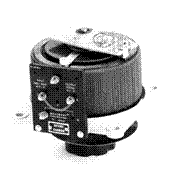Career Option in Electrical
Electrical and Electronics Drafters Job Description
 Electrical engineering, also referred to as electrical and electronic engineering, deals with the study and application of electricity, electronics andelectromagnetism It is only since late nineteenth century, after commercialization of the electric telegraph and electrical power supply, did this stream become recognized as a possible employment venue. It now covers a range of subtopics including power, electronics, control systems signal processing and telecommunications.
Electrical engineering, also referred to as electrical and electronic engineering, deals with the study and application of electricity, electronics andelectromagnetism It is only since late nineteenth century, after commercialization of the electric telegraph and electrical power supply, did this stream become recognized as a possible employment venue. It now covers a range of subtopics including power, electronics, control systems signal processing and telecommunications.
A graduate degree (B.E) or at least a diploma in Electrical engineering is essential. The degree and postgraduate degree courses are offered by the private and government colleges in India and around the globe.
10th, +2 (Higher Secondary students) with science group as the majors can choose Bachelor degree in Electrical engineering (B.E).
The course duration for the various programs is as follows:
Diploma in Electrical engineering is three years.
B.E (Electrical engineering) is around four years.
M.E (Electrical engineering) is offered as a two year program in various universities.
The Total expense for doing Bachelor’s in Electrical engineering is as follows
B.E - Rs.45000/ per year - (4 Years)
M.E - Rs.56000/ per year - (2 Years)
Bank loans and private loans can be easily arranged by directly contacting the banks through the college administraton.
Almost all the deemed and general universities offer Bachelor degree in Electrical engineering.For further details on courses please visit www.StudyGuideIndia.com
Being an Electrical engineer requires very good knowledge and understanding which determinine the career success for a professional.
The jobs available are:
- Jr.Engineer
- Electrical system Controller
- PLC operator
- Programmer
- Tutor etc.
The salary can be from Rs.11, 000 to Rs.19, 000 for starters and increases with experience and knowledge.
A non-profit organization, IEEE is the world's leading professional association for the advancement of Electrical Technology. Web site link: http://www.ieee.org
 Add College
Add College Login
Login